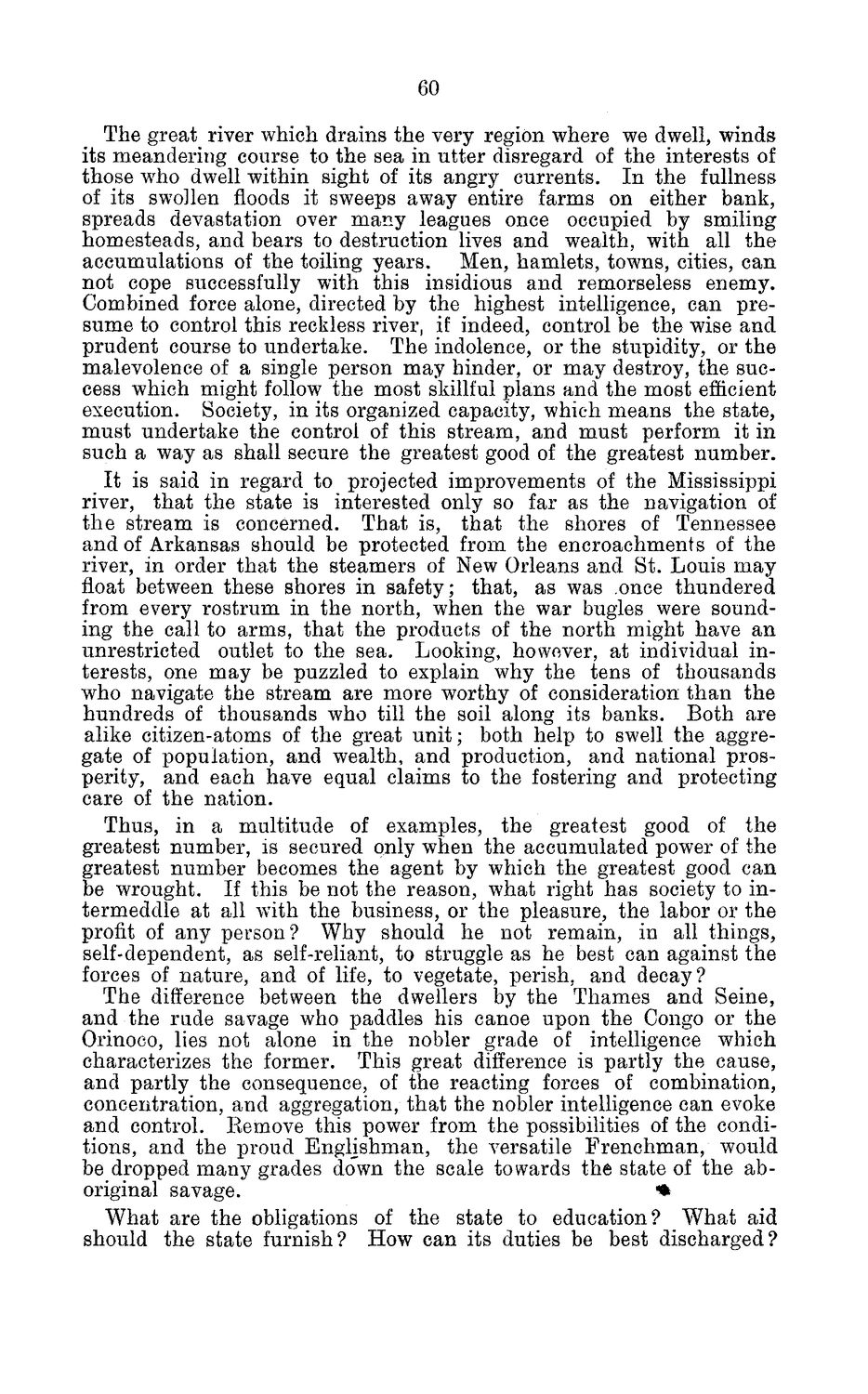| |
| |
Caption: Board of Trustees Minutes - 1884
This is a reduced-resolution page image for fast online browsing.

EXTRACTED TEXT FROM PAGE:
60 The great river which drains the very region where we dwell, winds its meandering course to the sea in utter disregard of the interests of those who dwell within sight of its angry currents. In the fullness of its swollen floods it sweeps away entire farms on either bank, spreads devastation over many leagues once occupied by smiling homesteads, and bears to destruction lives and wealth, with all the accumulations of the toiling years. Men, hamlets, towns, cities, can not cope successfully with this insidious and remorseless enemy. Combined force alone, directed by the highest intelligence, can presume to control this reckless river, if indeed, control be the wise and prudent course to undertake. The indolence, or the stupidity, or the malevolence of a single person may hinder, or may destroy, the success which might follow the most skillful plans and the most efficient execution. Society, in its organized capacity, which means the state, must undertake the control of this stream, and must perform it in such a way as shall secure the greatest good of the greatest number. It is said in regard to projected improvements of the Mississippi river, that the state is interested only so far as the navigation of the stream is concerned. That is, that the shores of Tennessee and of Arkansas should be protected from the encroachments of the river, in order that the steamers of New Orleans and St. Louis may float between these shores in safety; that, as was once thundered from every rostrum in the north, when the war bugles were sounding the call to arms, that the products of the north might have an unrestricted outlet to the sea. Looking, however, at individual interests, one may be puzzled to explain why the tens of thousands who navigate the stream are more worthy of consideration than the hundreds of thousands who till the soil along its banks. Both are alike citizen-atoms of the great unit; both help to swell the aggregate of population, and wealth, and production, and national prosperity, and each have equal claims to the fostering and protecting care of the nation. Thus, in a multitude of examples, the greatest good of the greatest number, is secured only when the accumulated power of the greatest number becomes the agent by which the greatest good can be wrought. If this be not the reason, what right has society to intermeddle at all with the business, or the pleasure, the labor or the profit of any person? Why should he not remain, in all things, self-dependent, as self-reliant, to struggle as he best can against the forces of nature, and of life, to vegetate, perish, and decay? The difference between the dwellers by the Thames and Seine, and the rude savage who paddles his canoe upon the Congo or the Orinoco, lies not alone in the nobler grade of intelligence which characterizes the former. This great difference is partly the cause, and partly the consequence, of the reacting forces of combination, concentration, and aggregation, that the nobler intelligence can evoke and control. Eemove this power from the possibilities of the conditions, and the proud Englishman, the versatile Frenchman, would be dropped many grades down the scale towards the state of the aboriginal savage. * What are the obligations of the state to education? What aid should the state furnish? How can its duties be best discharged?
| |